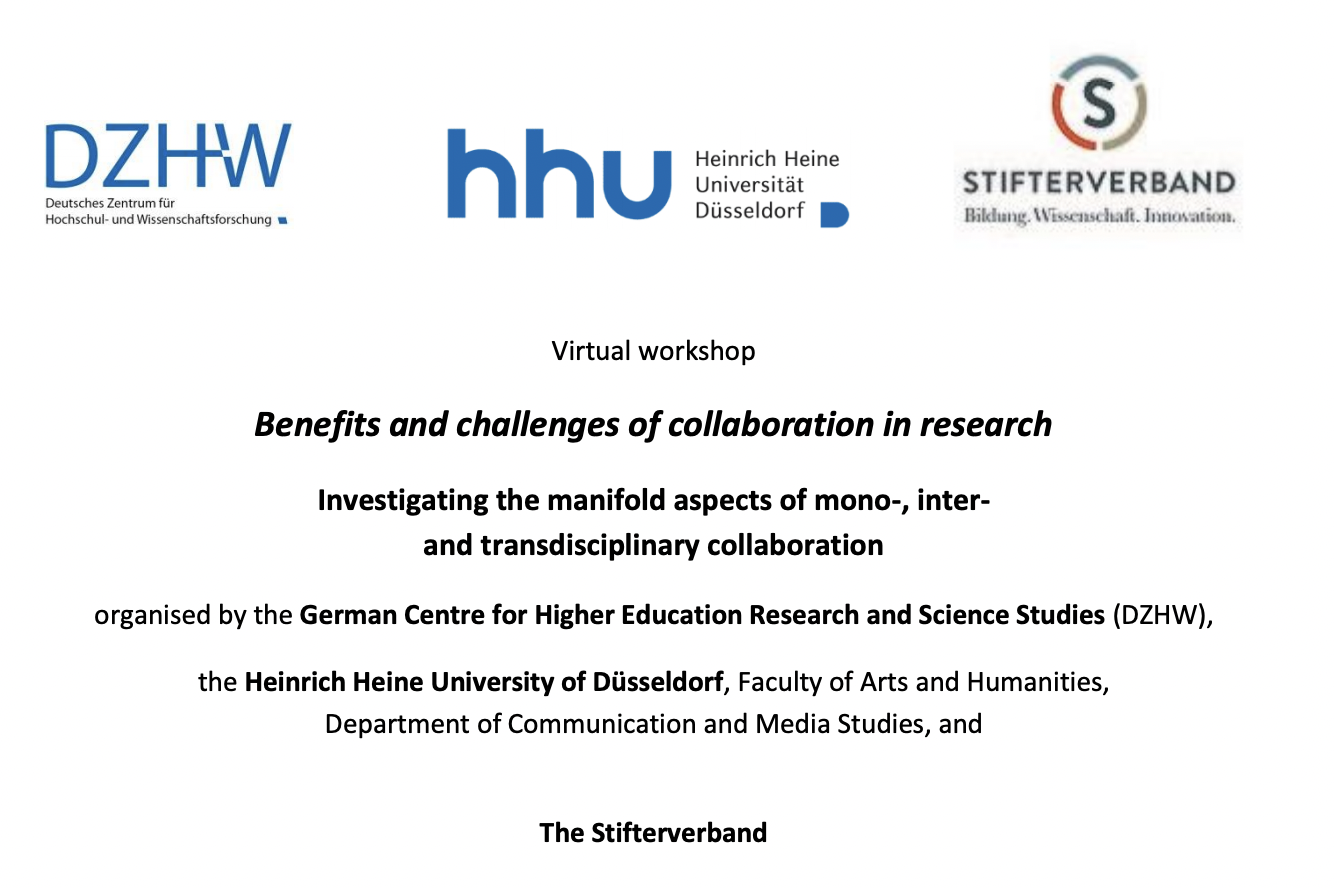
Benefits and challenges of collaboration in research
„Investigating the manifold aspects of mono-, interand transdisciplinary collaboration“ organised by the German Centre for Higher Education Research and Science Studies (DZHW), the Heinrich Heine University of Düsseldorf, Faculty of Arts and Humanities, Department of Communication and Media Studies, and The Stifterverband.
Sehr geehrte Damen und Herren,
hiermit möchten wir Sie auf den Workshop „Benefits and challenges of collaboration in research. Investigating the manifold aspects of mono-, inter- and transdisciplinary collaboration“ aufmerksam machen, der gemeinsam vom Deutschen Zentrum für Hochschul- und Wissenschaftsforschung (DZHW), der Fakultät für Philosophie der Heinrich-Heine-Universität Düsseldorf und dem Stifterverband für die deutsche Wissenschaft veranstaltet wird. Wir laden zu Beiträgen ein, die sich aus verschiedenen disziplinären und interdisziplinären Perspektiven und mit unterschiedlichen methodischen Zugängen mit Praktiken, Wirkungen und Effekten von Kooperationen in der Wissenschaft befassen.
Die Veranstaltung findet am 04. November 2021 im Online-Format statt, die Tagungssprache ist Englisch. Deadline für Einreichungen ist der 31. Juli 2021.
Call for Papers
Increasing interorganizational, national and international, and inter- and transdisciplinary collaboration is a megatrend in science (Wagner & Leydesdorff 2005; Bozeman et al. 2013; Bozeman & Boardman 2014; Hall et al. 2018). The number of papers published by teams in co-authorship is steadily increasing, with more than one-third of all papers being published by international teams (Huang 2015; Nabout et al. 2015; Wagner et al. 2015). Since scientific collaboration is considered vital to address complex challenges in research specifically and more generally for society as a whole, it has become an essential part of knowledge production, being associated with various advantages (e.g. synergies, pooling of resources and expertise). Working in diverse teams across disciplinary, organizational, or cultural boundaries is expected to increase the likelihood of discovery and innovation in science and high-impact research (Wuchty et al. 2007; Uzzi et al. 2013). However, scientific collaboration is also facing manifold challenges (e.g. transaction costs, trust, power struggles and reciprocity among collaborating partners, or heterogeneity of disciplinary and epistemic cultures). Further, as institutions and individuals compete for resources and reputation, the question arises how collaboration is possible under conditions of prevailing competition in science (e.g. van den Besselaar et al. 2012).